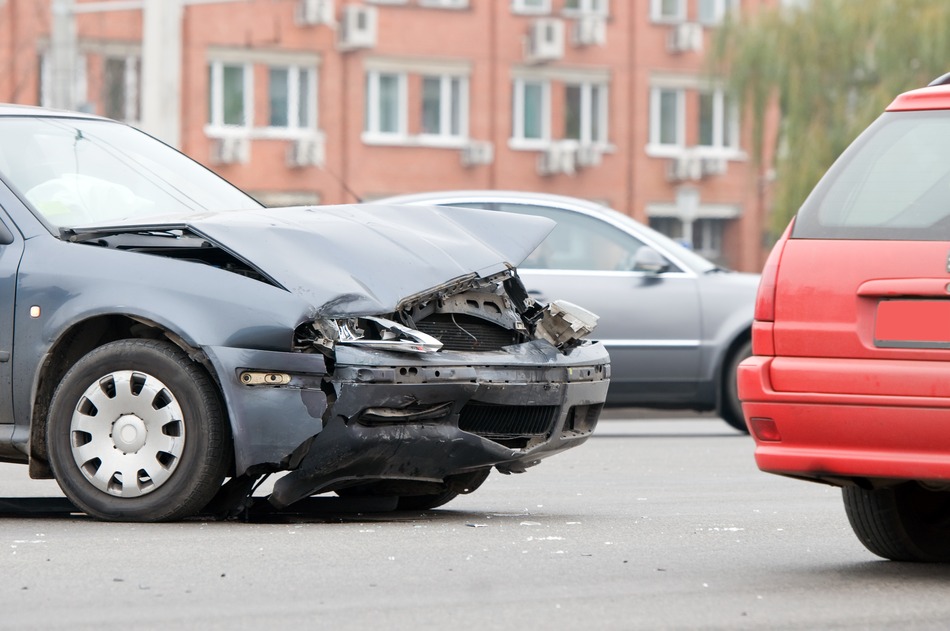Auto Accidents/Car Collision
For over 20 years, Sonja Duckstein has been aggressively preparing and prosecuting claims for clients in personal injury accident cases.
Q: What do I do if I am in a car accident?

A: If you are involved in an automobile accident, you should never leave the scene; otherwise, you could face criminal charges. Your first step is to call an ambulance if someone has been injured. Make sure your vehicle is not creating a hazard to other motorists by moving it from traffic, when possible. Call the police and file an accident report. Never admit liability–this is a legal matter that will be investigated later. Be sure to collect the names, addresses, and phone numbers of any witnesses, or others involved in the accident. It is also a good idea to take photographs to document skid marks, vehicle damage, road obstructions, and injuries. For more detailed information, check out What to Do After an Accident or our Accident Scene Checklist.
Q: When the police arrive at the scene of the accident, is it ok for me to talk to them?
A: Yes, you should. Whether you are the victim or the cause of an automobile accident, limit yourself to discussing the facts. You should avoid taking blame for the accident or making accusations.
Q: How much does it cost to speak with you about my situation?
A: We never charge for an initial consultation and for a review of the facts surrounding your case. Personal injury cases normally involve a contingency fee agreement, although retainer fees at an hourly rate are also available if you prefer. The client agrees to pay a specified percent of the recovery (which sometimes varies depending on whether a lawsuit settles early or the matter goes to trial or is appealed). If there is no recovery there is no fee, and the attorney normally absorbs any expenses which have been advanced on the case.
Q: How soon after the accident should I get a lawyer?
A: Quickly. To be safe, you should talk to an attorney as soon as possible, especially if the injuries are severe or a death has resulted. All too often valuable evidence disappears, witnesses move, memories grow dim and the practical ability to prove your case may diminish. If you are still being treated by a physician, an attorney can also provide you with guidance concerning your medical care and help you deal with unpaid bills and getting needed treatment. Legal advice can also be useful if you have questions about the settlement value of a claim, your insurance policy’s terms, or suspect bad faith on the part of your insurance company.
Q: Should I notify my insurance company of the accident?
A: Yes. You have a duty to cooperate with your own insurance company. Most insurance companies require their policyholders to promptly report every auto accident so that they can gather basic information. In fact, failure to provide information to your insurance company in a timely manner can result in loss of coverage for the accident. However, you should avoid making statements about who was at fault in the accident and only relate the facts of the accident as they occurred. You should consult a personal injury attorney before providing any other information to the insurance company.
Q: Should I notify the other driver's insurance company of the accident?
A: Unless you want to jeopardize your case, it is far better to hire a personal injury attorney to handle any communication. Most people have no concept of how the other side can twist something you have said so that you are robbed of much of the compensation you deserve, if not all of it.have “full coverage,” they do not have underinsured or uninsured coverage, which will cover you in the event of an accident where the other party cannot pay. Contact your insurance company and discuss what coverage you have, when the coverage is applicable, and, if necessary, hire an attorney if you believe your insurance company is trying to avoid paying a valid claim.
If this is not the case, and you do have full insurance coverage, you may not be satisfactorily compensated because your insurance company wants to minimize payouts. There are often disagreements about specific language in your insurance contract, how much a claim is worth, and whether any other parties are involved who may be responsible. If other insurance or health insurance companies are involved, there may be disagreements over who is responsible for payment. These issues can cause serious delays in compensation.
Q: Should I give any insurance company a recorded statement?
A: The short answer is NO. While you may be obligated to cooperate with your own insurance company and give your insurance company a statement, this does NOT require you to give a recorded statement to the other driver’s insurance company. In fact, you should not give a recorded statement until you have consulted with an experienced personal injury lawyer. Insurance companies’ claims adjusters are professional negotiators with extensive experience and are well trained to ask questions in a manner designed to hurt your claim. Insurance adjusters are trained to save money for the insurance companies, and if they can do that by making liability questionable or establishing that your medical claims are unfounded or unrelated, they may avoid having to pay for the full extent of your injuries.
